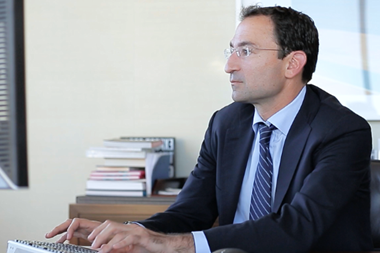There has been recent speculation about whether the UK real estate market can continue on its current growth trajectory.

Market indicators are positive: interest rates are low, lending margins have been reduced, rents are set to rise further and international money is still flowing into the UK.
But if the global financial crisis taught us anything, it’s not to be complacent. Even with the current favourable conditions, there are some signs of overheating in certain areas with a correction possible in the coming years.
Clearbell isn’t afraid of another downturn. Our combined experience has seen us through multiple cycles. Finding ways of staying profitable while meeting investors’ expectations through all phases of the cycle is critically important. Market conditions change, and with it, our approach to investment.
When we raised our first fund, MoREOF, between 2007 and 2009, we were very clear about the strategy: opportunistic. However, in moving from a buoyant market to a depressed one, we needed to adapt our approach quickly so as to be able to capitalise on a market where both real estate and capital were cheap. It became sensible to invest in less traditional investments to seek value, an approach that has paid off during the life span of the fund; we have been able to deliver great yields on opportunistic assets such as the mixed-use Mercury portfolio and address the under-supply of budget hotels in the London market by converting secondary London buildings.
As we move further through the cycle, the importance of being adaptable so as to move with the market has once again become clear.
During the investment phase of our latest fund, Clearbell Property Partners II, we have uncovered opportunities in the more traditional areas of real estate; higher-yielding investments that enjoy strong income, intense asset-management initiatives and repositioning. The shopping centre in Durham that we are now seeking to reconfigure to breathe life back into Durham city centre and attract new occupiers to the scheme is just one such example.
One needs to look to the future to be sure one has the expertise and market knowledge to continue to seek out the opportunities that exist throughout the UK.
But it is not asset management or even asset finding skills that will keep a real estate fund profitable during the lean times - it is being adaptable. Indeed, it is our ability to be adaptable that has become a differentiator for Clearbell.
As a small and agile investment manager, we are able to be flexible and to offer our investors a fund of varied opportunities depending on market conditions. Being smaller enables us to be more nimble and flexible in our approach. It is this that makes fund managers such as ourselves attractive destinations for individual investors seeking the best returns, or as a co-investment or JV partner for larger and more restricted funds.
Essentially, in the private equity real estate market, fund managers have to move quickly and change strategy if necessary. Whether that means increasing or decreasing your risk profile or reassessing your approach to asset management so as to match the market, managers must be able to do so.
We know that the market is moving and it will be an important differentiator to move with it. With the right plans in place and the appropriate level of flexibility, one can be confident of not just surviving but thriving - whatever the future holds for the UK real estate market.
Manish Chande is a senior partner at Clearbell Capital
































No comments yet